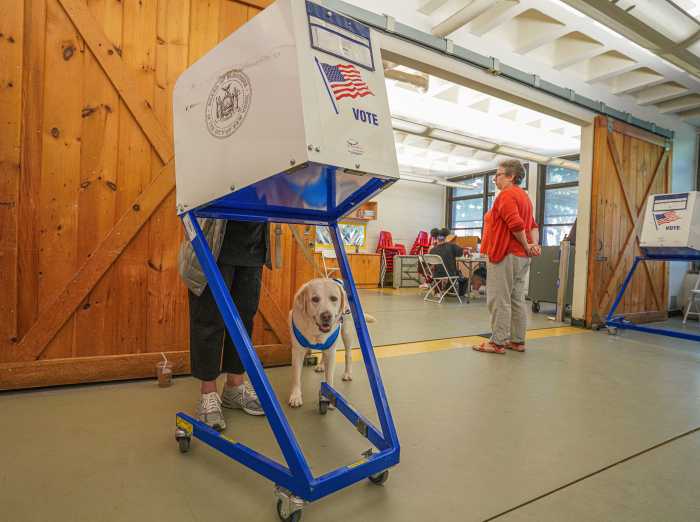Q. Can I be in the country legally while waiting to get permanent residence? I plan to marry my boyfriend of eight years. He is a permanent resident and he will petition for me after the marriage.
I have been here legally for eight years. First as an international student, then as an H-1B temporary worker. Once my husband-to-be petitions for me, does the United States Citizenship and Immigration Services (USCIS) consider me legally here?
- Anonymous, New York
A. Having a petition pending does not make you legal. Even if the USCIS approves your petition, you have a wait of many years before you get permanent residence. Meanwhile, unless you maintain legal nonimmigrant status, you will join the ranks of millions of undocumented immigrants.
If your husband gets U.S. citizenship, something he qualifies for after five years’ permanent residence, you can then apply for adjustment of status to permanent resident. While having an adjustment application pending does not make you legal, the USCIS rarely tries to remove someone that close to getting permanent residence.
Brother using marijuana
Q. The U.S. consul in Jamaica denied my brother permanent residence because he had been using marijuana. Can you give him any advice? My mother sponsored my brother.
After the consul discovered the marijuana use, he told my brother to return July 1, 2009. My brother is aware he will have to go back for a new medical exam next. How can he make sure he gets permanent residence?
- Name Withheld, Yonkers
A. My advice for your brother: Stay away from pot. When a consular officer finds marijuana usage, the applicant is usually barred from getting permanent residence for three years. It is possible your brother could get the consular officer to call him for a new test earlier, but that is unlikely.
Recently, I have been hearing more about visa denials based on marijuana usage. Immigrant visa applicants should be especially cautious about using the drug.
The U.S. consuls learn about marijuana use from the doctor who does the medical exam required of immigrant visa applicants. The doctor is looking primarily to see if the applicant has a serious communicable disease. However, the doctor tests also for drug usage.
The U.S. Department of State (DOS) instructs consular officers to deny a visa to applicants who have used certain drugs for “nonmedical” purposes within the past three years. Among the drugs looked for are marijuana, amphetamines and cocaine. If the doctor finds nonmedical usage of one of those drugs, the consular officer will bar the applicant from getting residence for three years.
According to the DOS Foreign Affairs Manual, “nonmedical” use “means” more than experimentation with the substance (e.g., a single use of marijuana or other nonprescribed psychoactive substances such as amphetamines or barbiturates).
Therefore, getting an outside expert to evaluate your brother’s situation before July 2009 might speed up his getting residence. If the expert concludes that your brother was an “experimenter” rather than a “user” of marijuana, the consul could reconsider the denial.
Fighting the “user” finding would be very hard. His only other choice is to pass a new exam in July 2009.
He has a criminal record
Q. Will my criminal record keep me from getting U.S. citizenship? Will the government deport me if I try to renew my green card? I got my green card in 1966. I am an honorably discharged U.S. Navy veteran. I am also an alcoholic and I was convicted three times of sales of a controlled substance. I am working hard to right my wrongs. I am fighting my alcoholism with help from Alcoholics Anonymous.
- Domingo, Holbrook, N.Y.
A. From what you write, applying for a new green card or U.S. citizenship may result in your deportation. Your crimes are almost certainly offenses for which the government could deport you. Applying for a new card or citizenship may bring your convictions to the attention of the USCIS. And as a result, you could end up in removal proceedings.
Unless your convictions came after a plea agreement (or a plea of nolo contendere - no contest) entered into before April 24, 1996, your chances of beating deportation are slim. April 24, 1996, is when a law took away a judge’s power to grant relief from deportation to certain immigrants convicted of selling drugs and certain other serious crimes.
A U.S. Supreme Court decision held that certain long-term residents who pleaded guilty to certain offenses before the law changed may ask an immigration judge to waive deportation. However, if you were convicted after a trial or if any of your convictions occurred April 1, 1997, or after, you have almost no chance of beating deportation.
That is true despite your having been a permanent resident for more than 40 years. To be sure of your options, have an expert review your criminal record.
Allan Wernick is a lawyer and chair of the City University of New York Citizenship and Immigration Project. He is the author of “U.S. Immigration and Citizenship - Your Complete Guide, Revised 4th Edition.” Send questions and comments to Allan Wernick, Daily News, 450 West 33rd Street, New York, N.Y. 10001. Professor Wernick’s web site is www.allanwernick.com.
Allan Wernick’s Immigration column is reprinted from the Thursday, June 5 editions of the New York Daily News.

































